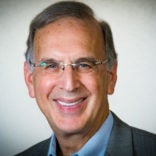WASHINGTON (JTA) — With congressional passage of the Edward Kennedy Serve America Act in March, President Obama made good on a campaign promise to grow the number of opportunities for young people to serve America. The bill will increase the number of service opportunities under the Corporation for National and Community Service from 75,000 to 250,000. Volunteers will be deployed on initiatives ranging from education to health care to the greening of America.
To be sure, this is an initiative that had broad bipartisan support. In fact, during the heat of the presidential campaign one of the few joint appearances of Barack Obama and John McCain was at a 9/11 commemoration in New York City convened under the auspices of ServiceNation. Both candidates spoke of the centrality of service to the health of our nation’s democracy.
The symbolism of 9/11 for that joint appearance was poignant. The day conjures up the fear that religious commitment can too easily be turned into intolerance and acts of violence between ethnic and faith communities. But one of the most promising developments in American society is the growing realization that faith communities can inspire and support the kind of citizen behavior that is the goal of the Serve America Act.
Let me provide one small illustration.
Twenty-one years ago I founded an organization called Panim whose goal was to inspire young Jews to a lifetime of leadership, activism and service based on the teachings of the biblical prophets. Tens of thousands of young people have been touched by our programs and gone on to engage in acts — sometimes small and sometimes grand — to make a difference in their communities, their country and the world.
Panim came together earlier this month with BBYO, the largest transdenominational Jewish youth movement in the world, reaching over 25,000 teens. This was not just a consolidation motivated by the shrinking philanthropic resources in the current marketplace, though the several million dollars raised to effect the merger signaled that Jewish philanthropists will reward smart, strategic moves that promise huge impact.
More importantly it signals a coming of age of American Jewry. We can no longer promote Jewish identity in an insular basket. In an age when Jews are fully integrated into American society and young Jews are more likely to identify with the label “global citizen” than “American Jew,” the only continuity strategy that will work is one that marries strong Jewish values content to a program that helps Jews see how they can make meaningful contributions to their communities, their country and the world.
More than 10,000 Jewish teens came together last year for J-Serve, a day coordinated by Panim that was coordinated with Youth Service America’s Global Day of Youth Service. Teens in more than 80 communities worked in food pantries, nursing homes, inner-city schools, homeless shelters, green projects and more. Given the merger with BBYO, that number will increase significantly.
BBYO itself reports that last year its members contributed $123,000 to tzedakah and performed more than 80,000 hours of community service. The ripple effects of these kinds of experiences have huge implications for the way Jews can simultaneously contribute to the world and reinforce their identification with the Jewish community.
Alumni of BBYO and Panim have gone on to organize divestment campaigns in local jurisdictions in an attempt to halt the genocide in Darfur; coach the children of immigrants to take college entrance exams and help them gain entry into colleges that they believed were beyond their reach; and raise money through benefit concerts to help homeless families.
A number of alumni have launched new nonprofits serving both the Jewish community and the wider world. Others are in senior staff positions in government; at least one is a member of Congress.
The Panim Institute of BBYO is not alone in advancing a social responsibility agenda in the Jewish community.
Hillel is sending thousands of college students to serve communities on alternative spring break. Many more service opportunities for young adults in developing countries are being created by the American Jewish World Service. Avodah: The Jewish Service Corps places college graduates in cities where for a year they work with organizations seeking to combat poverty. Jewish Funds for Justice has made a huge impact in bringing Jewish helping hands and financial resources to the Gulf Coast.
The newly established Repair the World organization will serve as both an umbrella and an impetus for more of this work.
Jews the world over are preparing to usher in the New Year. They will confront a liturgy that reminds them that the path to personal reconciliation and renewal (teshuvah) require acts of justice and righteousness (tzedakah) in the larger world. The coincidence of these themes and the Holy Days with the anniversary of 9/11 only makes the message all the more poignant.
When confronting a world that is under assault by forces of hatred, intolerance and violence, Jews must reaffirm our tradition’s values of compassion (chesed), truth (emet) and peace (shalom).
Rabbi Sidney Schwarz is the founder of and now senior consultant to the Panim Institute of BBYO. He is the author of "Judaism and Justice: The Jewish Passion to Repair the World" (Jewish Lights).






